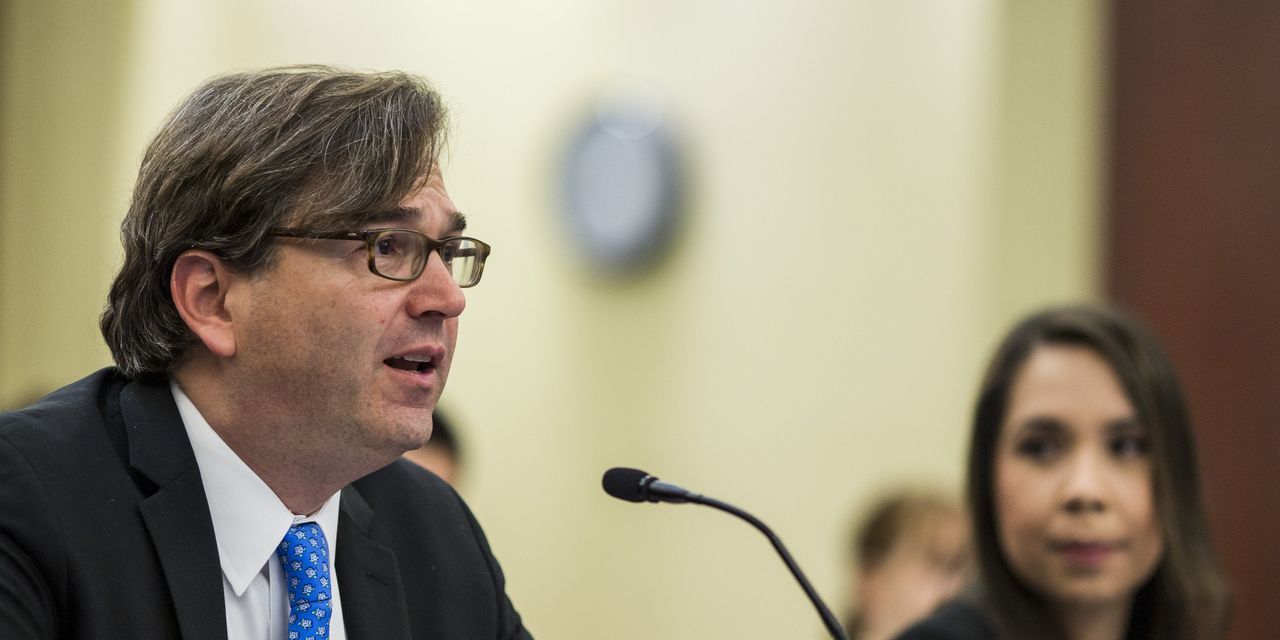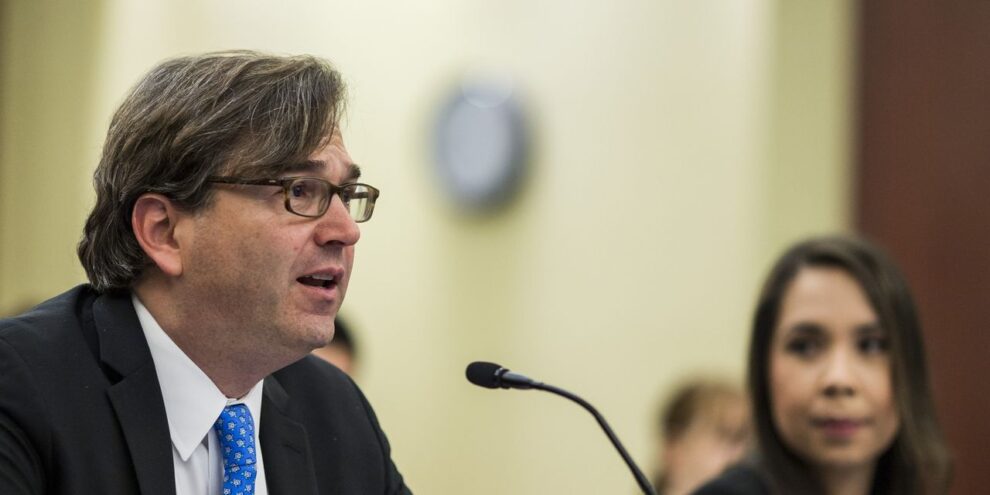
President Joe Biden’s student-debt relief plan could fuel inflation and benefit the well-off, Jason Furman, a top economic adviser in the Obama White House, said in an interview with MarketWatch on Saturday.
“The Hippocratic Oath is do no harm,” Furman said at the Jackson Hole Economic Symposium in Wyoming. “It’s hard to argue that whatever number of hundreds of millions of dollars here isn’t doing harm to the central project we have as a country, which is dealing with inflation.”
Don’t miss: Jackson Hole notebook: Jason Furman says Fed’s benchmark rate could hit 5.5% next year
President Biden announced Wednesday that his administration would cancel up to $10,000 in student debt for borrowers earning up to $125,000 a year and up to $20,000 for borrowers who meet that income threshold and were Pell grant recipients in college. In the lead-up to and in the wake of the announcement Furman has been one of the loudest economic voices deriding the plan, taking to Twitter to call it “reckless” and to argue that it would pour “roughly [a] half-trillion dollars of gasoline on the inflationary fire that is already burning.”
White House officials have disagreed. Bharat Ramamurti, the deputy director of the National Economic Council, told reporters Friday that the combination of restarting student-loan payments with providing some relief to borrowers would largely offset one another. Other economists have backed up the White House’s notion that the president’s plan wouldn’t meaningfully impact inflation.
“Debt forgiveness that lowers monthly payments is slightly inflationary in isolation, but the resumption of payments is likely to more than offset this,” Goldman Sachs economists wrote shortly after the plan was announced.
Concerns debt relief would lead to dangerous levels of inflation are “bizarre”, Nobel Prize–winning economist Paul Krugman wrote in the New York Times. “So bizarre that I can’t help suspecting that in many cases they’re coming from people who would rather take a cheap shot than lay out their real reasons for opposing this program.”
In the interview, Furman reiterated concerns other than inflation he has with the plan, including that it could benefit borrowers with high incomes. “If income limits had been half as high, it hadn’t applied to professional schools, I would have been half as concerned as I was.”
The White House has said that nearly 90% of the benefit of the plan in dollars will go to households earning less than $75,000. The Penn Wharton Budget Model found that 0.99% of the benefit will accrue to Americans in the top 10% of the income distribution and none of the benefit will go to households in the top 5%.
Furman also expressed worry that the plan doesn’t address the underlying causes of the student loan problem. That’s a concern that both critics and proponents of mass debt relief share. Advocates of broad-based student debt cancellation have said it should be paired with efforts to better subsidize public colleges so students and families would pay less up front. College affordability policies generally require action from Congress, something the Biden administration was unlikely to get in this partisan political environment.
“If there was a legislative policy that fixed student loans going forward and included targeted debt relief, I would be very supportive of that,” Furman said. “Absent any reforms to make sure we’re not back in the same place five years from now I think my preference would be no relief at all.”
As part of the White House’s debt relief plan, officials also announced a proposal to make major changes to income-driven repayment, the payment plans borrowers can use to pay back their debt as a percentage of income. Under the Biden administration’s plan, the share of income borrowers would be required to devote to student loan payments each month would be cut in half, among other provisions.
Reforms to income-driven repayment are on Furman’s list of ways he would go about dealing with the student loan problem. In addition, he said providing more grant aid up front to students and making student debt dischargeable in bankruptcy, among other proposals, would help to curb student debt.
Some critics of Furman and other economists who have derided student relief have wondered out loud whether their concern comes from a lack of the kind of understanding that comes with interacting with the challenges of college affordability and repaying student loans first hand. Susan Dynarski, an economist and professor at the Harvard Graduate School of Education, wrote on Twitter that she wishes that “more economists would recognize that a lot of their ‘economic intuition’ is based on their lived experiences. It is hard to form or fathom hypotheses about constraints you have never faced.”
Furman dismissed that criticism in the MarketWatch interview.
“My parents paid for college,” he said. “I’ve also supported tax policies that raise taxes on myself very vociferously, so I don’t think you can wrap my own personal interest into my views on public policy very easily.”









